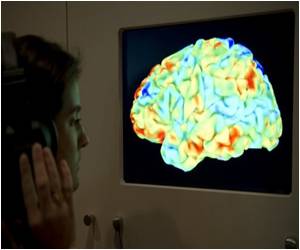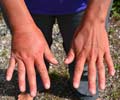Researchers have identified more than a hundred different variation in a patient's DNA sequence that could help predict chronic pain after amputation

"Traumatic amputations of limbs profoundly change the lives of affected military service members," said Andrew D. Shaw, M.D., associate professor of anesthesiology and critical care medicine, Duke University Medical Center, Durham, N.C. "Persistent pain after amputation is a serious problem with no effective treatments. By identifying these 'pain genes', we may be able to discover the reasons why pain occurs and predict which patients are more likely to have it. In the future, we hope to discover the biology of persistent pain and develop ways to combat it."
In the study, blood was collected for DNA, RNA and plasma extraction from 49 service members who had amputations and persistent pain. These blood samples were then mapped using Exome Sequencing technology to identify any variations the military service members have in common.
Hundreds of new DNA sequence variations previously unknown were identified as pathways of biological importance as the possible source of chronic, persistent pain for service members, according to the study.
"This is one of the first studies where 'pain genes' have been identified in humans using next-generation sequencing," explained Dr. Shaw. "We have known about some of them in lab studies. Now that we have identified these gene variations, we need to study them and then create new medicines to prevent and relieve the chronic pain for these patients."
The American Society of Anesthesiologists
Founded in 1905, the American Society of Anesthesiologists (ASA) is an educational, research and scientific society with more than 50,000 members organized to raise and maintain the standards of the medical practice of anesthesiology. ASA is committed to ensuring physician anesthesiologists evaluate and supervise the medical care of patients before, during and after surgery to provide the highest quality and safest care every patient deserves.
 MEDINDIA
MEDINDIA



 Email
Email









